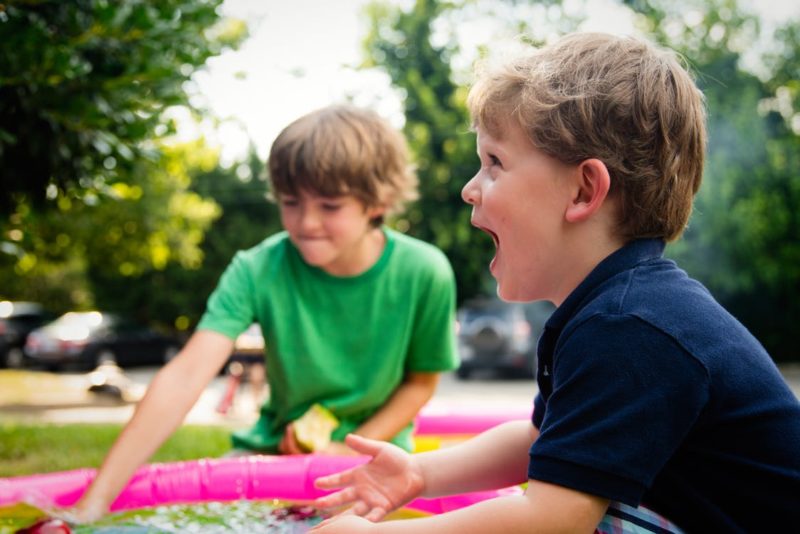When you think about your child’s summer, chances are you picture kids running through sprinklers, participating in camp sing-alongs, and maybe even starting an epic water balloon fight—but not about how being physically active outside effects your child’s academic achievement or mental health. But, in fact, many studies show that physical activity and spending time in nature can improve brain function and focus, boost mood, and have a plethora of health benefits.
Inactivity is widespread among kids today—in fact, physical activity tends to peak at about age 7 for both boys and girls, and then declines throughout adolescence. Encouraging your children to have fun by being active outside can set them up to buck this trend and be physically and mentally healthy for a lifetime. That’s one of the reasons why we added Outdoor Quests to our SUMMER BRAIN QUEST Workbooks—besides the fact that it’s just plain fun to play outside!
Indeed, what better time than summer to get exercise through play! So, grab the sunscreen and head out the door—here are just a few of some of the surprising benefits of having an outdoor adventure:

- Develop motor control skills: Allowing for safe, but challenging physical activities can help kids develop gross and fine motor control skills. From playing in a sandbox to perfecting that baseball pitch, outdoor activities can translate into better handwriting or more precise piano scales.
- Reinforce knowledge across all subjects: The outdoors is a perfect science lab, practical place to apply math, and environment to explore social studies lessons. Count ladybugs, observe a bee pollinating a flower, or read a map to explore a new town—the world is your classroom!
- Improve judgement and responsibility: Ever been a team captain? Felt responsible for a little brother or sister while on a nature walk? Team sports, exploring nature, or even playing in a public playground can offer lots of opportunities to learn about leadership, fairness, cooperation, and accepting responsibility for behavior.
- Reduce stress: Tantrums, sibling rivalries, nightmares—being a kid can be stressful. Physical activity can help release tension and anxiety and increase your child’s resilience. More and more studies are showing that spending time in nature can boost your immune system, reduce stress, improve your mood, and more!
- Make and strengthen friendships: We’ve all heard it at some point or another—there’s no “I” in “team.” But cooperative play and team activities will put these platitudes into practice. Team sports and many outdoor activities can help them make and keep friends and be a major force in helping kids learn positive people skills.
- Improved self-confidence and self-esteem: Do you praise your child for mastering their abc’s? Try extending that to mastering the monkey bars. Improving physical skills can instill a strong sense of self-worth and help kids become more confident, assertive, and independent.
- Learn to set goals: Can I climb that rock? How about that larger rock? The outdoors gives kids lots of opportunities to set and strive for goals that excite and engage them.
Sources and Further Reading:
- “Phys Ed: Can Exercise Make Kids Smarter?” (New York Times)
- “Mental Health Benefits of Exercise in Children Mental Health Benefits of Exercise in Children” (Psychiatric Times)
- “Child’s Play Is Good for All of Us” (New York Times)
- “The Importance of Physical Education” (Virginia Education Association)
- “Immerse Yourself in a Forest for Better Health” (New York States Department of Environmental Conservation)





No Comments